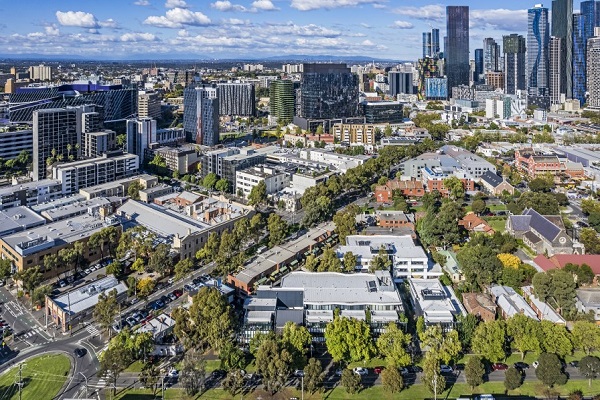Foreign investors to pay increased fees to purchase established property

In response to various media commentary and public sentiment that foreign investors are one of the most significant factors causing the shortage of housing supply in Australia, the government has announced that it will soon introduce legislation to implement higher foreign investment fees for housing in order to boost available housing stock.
Foreign investors that plan on investing in assets in Australia, whether it be residential land or property, business investments, commercial land, agricultural land or mining, production or exploration tenements, need to apply for relevant approval to invest before the purchase of the asset.
In relation to residential land and property (e.g. new dwelling, established dwelling and vacant property), investors need to apply to the ATO. Approval is also required for the acquisition of an interest in a residential property (e.g. as mortgagee or leasehold asset.
Duplicate the above container for more 2 column sections OR Duplicate the below container for 1 column text only sections. (DON’T FORGET TO DELETE THIS CONTAINER)
Proposals to increase fees for foreign investors
The government’s latest proposal will see foreign investors pay higher fees when they buy established homes, and increased penalties for those that leave properties vacant.
Interestingly, the higher fees will not apply to foreign investors that purchase new property.
Specifically, the government is seeking to triple the foreign investment fees for the purchase of established homes and double the vacancy fees for all foreign-owned dwellings purchased since 9 May 2017.
The Government will also seek to enhance the ATO’s compliance regime to ensure foreign investors comply with the rules, including selling their residence when required.
However, at the same time, the government will also seek to cut application fees for foreign investment in Build-to-Rent projects to support the delivery of more homes across Australia.
Current foreign investor regime
Currently, foreign investors can only purchase an established dwelling to use as a principal place of residence subject to approval from the ATO and by satisfying the following conditions:
- the property must be vacant at settlement;
- the property must be used as a principal place of residence while in Australia;
- the property or any part of the property must not be rented out; and
- when the property ceases to be a principal place of residence in Australia, or when the foreign investor is no longer a temporary resident, the property must be disposed of within 6 months.
Foreign investors may also be granted approval to purchase an established dwelling if a proposal to develop that established dwelling will genuinely increase housing stock, subject to certain conditions. This includes retaining the established dwelling and building one or more new dwellings alongside of comparable size, demolishing the established dwelling and building multiple new dwellings, or building multiple dwellings on land that is currently vacant but previously had a dwelling on it.
Applications to the ATO for approval to purchase residential property by foreign investors currently require payment of a fee that depends on the value of the property. From 1 July 2023 to 30 June 2024, homes that are purchased for $1 million or less have an application fee of $14,100. For homes that are purchased for $2 million or less the fee is $28,200, and this fee increases by $28,200 for every million dollars in price increase until the fee hits $112,800 for homes purchased for less than $5 million. There is also a maximum fee cap of $1,119,100.
Proposed higher application fees for foreign investors
If the government’s latest proposal becomes law, the new application fees for foreign investors would be as follows:
- homes purchased for $1 million or less will have an application fee of $42,300;
- homes purchased for $ 2 million or less will have an application fee of $84,600, and this fee will increase by $84,600 for every million dollars in price increase until the fee hits $338,400 for homes purchased for less than $5 million;
- the maximum fee cap will increase to $3,357,300.
Annual vacancy fee
In addition, foreign investors are currently subject to an annual vacancy fee if a property they own is not occupied or rented out for 183 days (6 months) or more in a vacancy year.
A vacancy year is generally each successive period of 12 months, starting on the occupation day for the dwelling that the foreign investor has held a continuous interest.
This vacancy fee is generally the same as the application fee that was paid when the foreign investor submitted the residential property purchase application.
Proposed increase to annual vacancy fee
If the legislation proposed by the government is introduced and passed, the following annual vacancy fees will apply:
- homes purchased for $1 million or less will have a vacancy fee of $28,200 per vacancy year;
- homes purchased for $2 million or less will have a vacancy fee of $56,400 per vacancy year, and this fee will increase by $56,400 for every million dollars in price increase until the fee hits $225,600 for homes purchased for less than $5 million;
- the maximum vacancy fee cap is likely to increase to $2,238,200.
This change will affect both new and existing foreign investors, so caution is needed, particularly in terms of leaving a property vacant due to work commitments for foreign investors who travel for work or business reasons.
Disclaimer: The information on this page is for general information purposes only and is not specific to any particular person or situation. There are many factors that may affect your particular circumstances. We advise that you contact Mathews Tax Lawyers before making any decisions.
